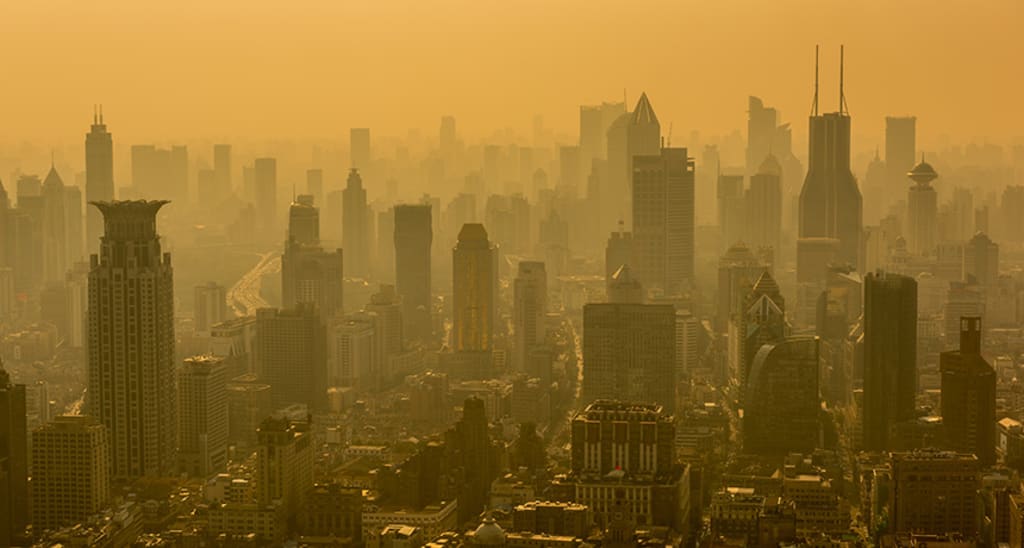The Effects of Climate Change on Air Quality in the US
How Extreme Heat, Wildfires, and Air Pollution are Threatening Public Health

Introduction:
Climate change is a global crisis that affects every aspect of our environment, including the quality of the air we breathe. The United States is no exception to this phenomenon, with increasing evidence of the impact of climate change on air quality. Extreme heat, wildfires, and air pollution are all linked to climate change, and their effects on air quality pose significant health risks for the US population. This article will explore the impact of climate change on air quality in the US and its long-term implications.
Extreme Heat:
Extreme heat is one of the most direct effects of climate change on air quality. As temperatures rise, the air becomes more stagnant, trapping pollutants and leading to increased levels of ground-level ozone and fine particulate matter. Ground-level ozone, also known as smog, is a major air pollutant that can cause respiratory problems, such as asthma and lung cancer, and exacerbate existing health conditions. Fine particulate matter, also known as PM2.5, is a type of air pollutant that can cause heart and lung problems, as well as premature death. Extreme heat can also lead to heat-related illnesses, such as heat stroke and dehydration, which can be deadly if not treated promptly.
Wildfires:
Wildfires are another significant impact of climate change on air quality in the US. As temperatures rise and droughts become more frequent and severe, the risk of wildfires increases. Wildfires produce smoke, ash, and other pollutants that can travel long distances and impact air quality in neighboring communities. The smoke from wildfires contains particulate matter, carbon monoxide, and other harmful chemicals that can cause respiratory problems, cardiovascular disease, and other health issues. In addition to the direct health impacts, wildfires can also lead to the loss of homes, businesses, and natural habitats, causing significant economic and ecological damage.
Air Pollution:
Air pollution is a long-standing problem in the US, but climate change is exacerbating its effects. The burning of fossil fuels, such as coal and oil, releases pollutants into the air, including carbon dioxide, sulfur dioxide, and nitrogen oxides. These pollutants contribute to the formation of ground-level ozone and fine particulate matter, which can cause respiratory problems, cardiovascular disease, and other health issues. Air pollution is also linked to climate change, as it contributes to the greenhouse gas emissions that cause global warming.
Long-term Implications:
The effects of climate change on air quality in the US are not just immediate but also have long-term implications. The health impacts of air pollution and extreme heat can be long-lasting and can lead to chronic illnesses, reduced quality of life, and premature death. In addition, the economic and ecological impacts of wildfires can have long-term consequences, such as the loss of natural habitats and the extinction of species. The long-term implications of climate change on air quality highlight the urgent need for action to mitigate its effects.
Adaptation and Mitigation:
Adaptation and mitigation are two strategies that can be employed to address the effects of climate change on air quality. Adaptation involves making changes to infrastructure, policies, and practices to reduce the impact of climate change on air quality. This can include investing in public transportation, reducing energy consumption, and improving building codes to reduce heat island effects. Mitigation involves reducing greenhouse gas emissions to slow the rate of climate change. This can include transitioning to renewable energy sources, reducing energy consumption, and implementing carbon pricing policies.
Conclusion:
The effects of climate change on air quality in the US are significant and far-reaching. Extreme heat, wildfires, and air pollution are all linked to climate change, and their impact on air quality poses significant risks to public health. The long-term implications of climate change on air quality highlight the urgent need for action to mitigate its effects.





Comments
There are no comments for this story
Be the first to respond and start the conversation.